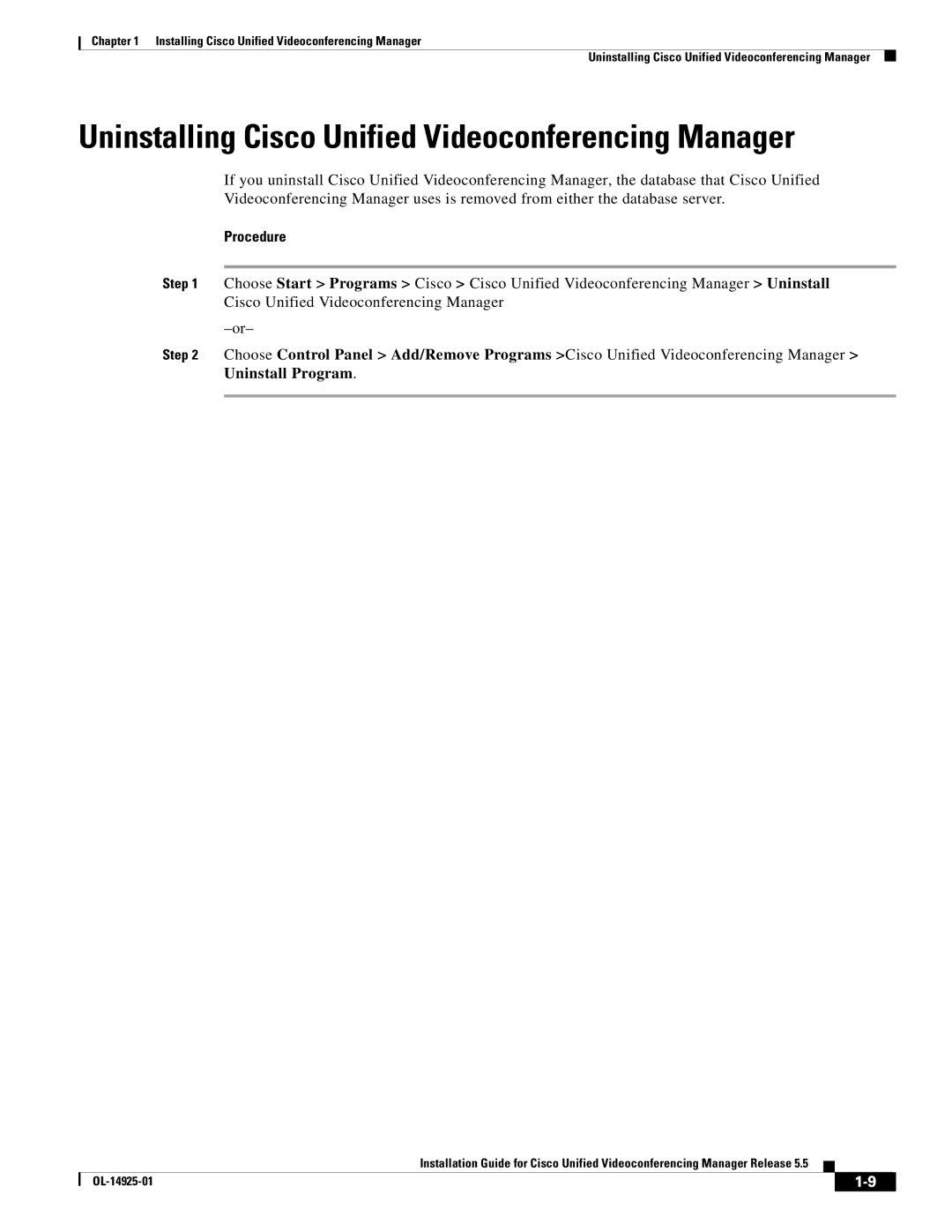MCS 7845 Series, MCS 7825 Series, MCS 7835 Series specifications
Cisco Systems has been a leading provider of networking and communication solutions, and its MCS (Multimedia Communications Server) series is a prime example of its innovative technology. The MCS 7835, MCS 7825, and MCS 7845 Series are integrated servers designed to offer robust performance for various enterprise applications, particularly in unified communications and multimedia services.The MCS 7835 and MCS 7845 Series servers are engineered to support high-availability requirements, offering exceptional processing power and reliability. They come equipped with quad-core Intel processors, ensuring efficient data handling and responsiveness, which is vital for demanding applications like VoIP, video conferencing, and collaboration tools. The MCS 7835 typically targets medium-sized organizations, while the 7845 is tailored for larger enterprises that require additional capacity and scalability.
On the other hand, the MCS 7825 Series serves as an entry-level solution for organizations looking to implement unified communications without the need for extensive resources. This model still offers solid performance, optimized for smaller setups while providing essential features that support basic multimedia applications.
One of the main features of the MCS series is their compatibility with a variety of Cisco applications, including Cisco Unified Communications Manager and Cisco WebEx. This cross-compatibility allows organizations to seamlessly integrate the servers into their existing communication infrastructures, enabling enhanced collaboration among employees.
The MCS series also incorporates advanced virtualization technologies, which facilitate improved resource management and deployment efficiency. Virtualization allows multiple applications to run on a single server, optimizing hardware utilization and reducing operational costs.
In terms of characteristics, the MCS series supports a wide range of network protocols and standards, ensuring they can operate within diverse IT environments. This versatility makes them suitable for industries ranging from education to healthcare, where reliable communication is critical.
Moreover, the MCS servers feature redundancy in their power supplies and cooling systems, promoting uninterrupted service and minimizing downtime. This is particularly essential for organizations that depend on constant communication and collaboration tools.
In conclusion, Cisco's MCS 7835, MCS 7825, and MCS 7845 Series serve as powerful, reliable, and flexible solutions for enterprises aiming to enhance their multimedia communications. With cutting-edge technologies and robust features, they stand ready to support an evolving digital workplace.

